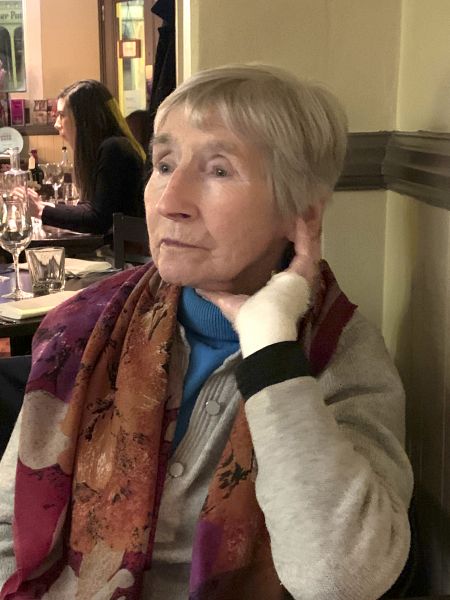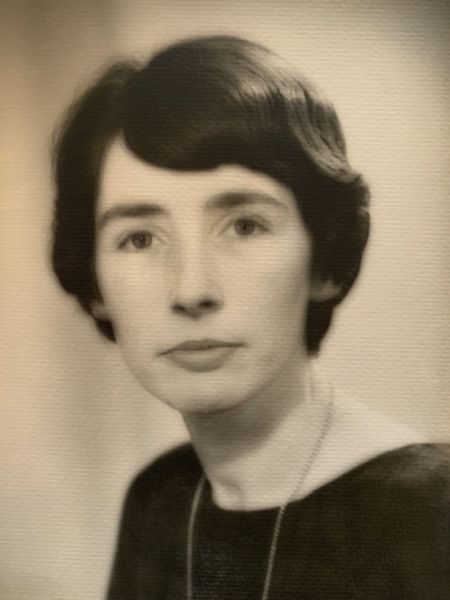The Birgitta Honeybourne Autism Initiative
Raising awareness of the realities of life on the autistic spectrum
In the spirit of Birgitta’s life and legacy, the Initiative will seek to promote open-mindedness, education, understanding and compassion as integral values in building a world where autistic people can flourish.
What the Birgitta Honeybourne Autism Initiative involves
In seeking to raise awareness and promote understanding of autistic spectrum conditions, activities will include:
- Talks by Duncan Honeybourne about his life and experiences, sometimes enriched by contributions from colleagues and associates. Concerts in which Duncan plays and talks about his life can also be arranged
- Given Birgitta’s background as an educator, the Initiative seeks to arrange talks to groups of teachers and educators, given by Duncan Honeybourne about living and working with autism. These will draw on Duncan’s experience of working in education
- The charitable aspect of the Initiative is that these talks and lectures will be given without fee, although Duncan will have to ask for expenses when travelling a distance from his home
- Occasional written articles about Duncan’s autistic experience
Birgitta’s Autism Initiative

The autism spectrum is wide. Much has been, and continues to be, written about it, and social media is alive with discussion of its intricacies. Each autistic individual is different, with specific strengths, weaknesses, insights and needs. Setting up the Birgitta Honeybourne Autism Initiative after his mother’s death, Duncan realised there was no need – and no funding – for another large corporate organisation. Instead, he felt that a more personal initiative would honour his mother’s memory more fittingly and help others more decisively.
Since receiving his diagnosis in 1999, Duncan has given numerous talks, lectures and training sessions about his personal journey. It is widely recognised that autistic people themselves deliver the most powerful insights into autistic life. “I’ve never claimed to speak for all autistic people”, says Duncan, “and I’ve never claimed to be an expert in any conventional sense. I don’t have any desire to talk about my struggles and challenges for the sake of being centre-stage. It’s not about me, as such. But when I’ve talked about my autistic life it seems to have resonated with people. It seems to have helped other people and families, and I’ve had the most extraordinary letters and comments from people because, for all the differences between individuals, there are certain commonalities in the autistic experience. Apparently I articulate things that help others and, if that’s happening, I’m going to carry on doing it.”
Duncan feels there’s a danger in the current easy familiarity with autism. “Everyone knows people who are autistic, and many know a little about it. The danger is that they then think they know everything about it, and assume everyone will fit a blueprint or, worse, a stereotype. Every time I meet one other autistic person I learn so much more. There’s no “one-size-fits-all” model. None of us know it all, but in embracing and sharing experience lies strength.
“My other cautionary message is that appearances can be deceptive. I have an active career and a full life, therefore many observers think I’ve “overcome” my autism and that I’m some kind of success story and don’t need ongoing support. I very much do, and I never know when I’m going to need it most, which is part of the problem. Autism is lifelong. It’s part of who I am and yes, I celebrate that, but there’s a difficult side, too.
“People also think that I couldn’t have been “that autistic” in the first place – another false assumption. The doctor who diagnosed me told me at the time that my autism manifested itself in some “extreme” ways, but that other “extreme” characteristics offset and balanced them. I was very lucky that I found my musical strengths early on, and these have been channelled into a career. But it wasn’t plain sailing by any means, and I was fortunate to have met some lovely people along the way, which has made a big difference. But above all, I had exceptional parents, and the care and support I had from them stopped me from sinking and helped me to swim. That is the thing that has got me this far. Both my parents were remarkable and they made a wonderful team.”
Duncan wants to continue to tell the story of his life and his parents’ support. “My mother had incredible vision and understanding, a compassion but at the same time a down-to-earth realism. She understood me, she challenged me and she fought for me. Her understanding of the intricacies of the autistic experience was spot-on, and her background in education helped her to see things in context. Essentially I had the benefit of ongoing one-to-one support from a first-class professional. My mother often said that if she had been young again she would have made autism her focus and specialism. Arguably, that’s exactly what she did.
I’m an autistic person who enjoys a full life and a successful career. This is as much my parents’ achievement as my own, and their story of love, sacrifice and tireless support is inextricably interwoven into my tale.”
Birgitta Honeybourne (1939-2021)

Birgitta Honeybourne was a remarkable woman: an outstanding teacher, a lifelong carer and a devoted wife and mother. From the age of thirteen she was determined to become a teacher, initially wanting to work with the deaf and later developing a passion for helping children with special needs. As a class teacher in primary schools in Kent and Dorset in the 1960s and 70s, she quietly pioneered some original educational techniques and doggedly fought for the welfare of all her pupils, including those with dyslexia and other needs.
Birgitta gave up teaching when she married at 37, but her career had prepared her for the journey ahead with her son, Duncan. As an infant he was diagnosed with mild cerebral palsy and his physical, social and emotional difficulties turned out to be extensive and challenging. These led to his eventual diagnosis of Autistic Spectrum Condition after a breakdown at the age of 21. Birgitta and her husband, Eric, moved house three times purely to make it possible for Duncan to pursue his studies in challenging circumstances.
Duncan’s early musical ability was eventually channelled into a professional career as a pianist, with concert tours in the UK and abroad, regular broadcasts and many recordings. Had it not been for Birgitta’s devoted care and support, providing a constant focus and reference point and working with him as both mother and teacher, Duncan says he would most likely now be “unqualified, unemployed, frustrated and depressed.” Birgitta’s investment of time, care and expertise led Duncan to what he describes as a “qualified independence... with structured support and back-up I can now lead a wonderfully fulfilling and enjoyable life.”
Birgitta died after a stroke in 2021, shortly before her 82nd birthday. In her final years, her major concern had been to guide Duncan towards that “qualified independence”. A few days before she became ill, she had told a close friend: “I wish I could do something to help the world understand more about what it’s like to be autistic. If only I were younger and I could work for more awareness and support.”
Birgitta knew better than most that autistic people can lead happy and full lives, and that many can achieve successful careers. She also knew that this frequently cannot happen without nuanced understanding and practical support, and she realised how many individuals and families struggle to access this, and how many fall by the wayside as a result. Her son, Duncan Honeybourne, has established the Birgitta Honeybourne Autism Initiative, to continue her legacy.
Two months before her death, Duncan received the following message from a former pupil of more than fifty years earlier:
Your mum was the most precious woman in my primary school life. I was very shy and she was so patient and understanding with me. She had a huge impact on my life. I have been in Australia for 33 years, but because of the strength I got from your mum I went to university in Australia and became a nurse. Everyone except your mum pretty much told me I was stupid/thick, so please thank her again for believing in her children and doing such a wonderful job.
Some other memories of Birgitta from friends and former pupils, received on her death in September 2021
Always Birgitta made friends, helped those around her and cared for all, including pet cats and dogs. She gave and gave, then gave some more. She was still giving, sharing and caring to the last weeks of her life. I am humbled by all she did and so very pleased and proud to have been her friend. The world is a better place for having had her in it.
She made a small child feel safe and secure and indeed very happy in a world where things were not so good.
A beautiful lady with the kindest and most caring soul and a sparkle of humour that would always lift your spirits.
Birgitta was someone so very, very dear to me. She encapsulated all the qualities of a best friend, a mother figure, confident and guardian angel. She was a beautiful person and wonderful friend to so many. She changed my life the moment she walked into it.
Her kindness and love towards people were not from this world. Rest in peace beautiful Angel.
If everyone cared like her the world would be a much better place.
Birgitta had a heart of gold, and cared for others far more than she cared for herself!
A great lady, teacher and later friend.
